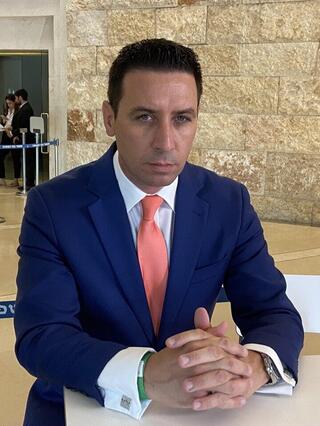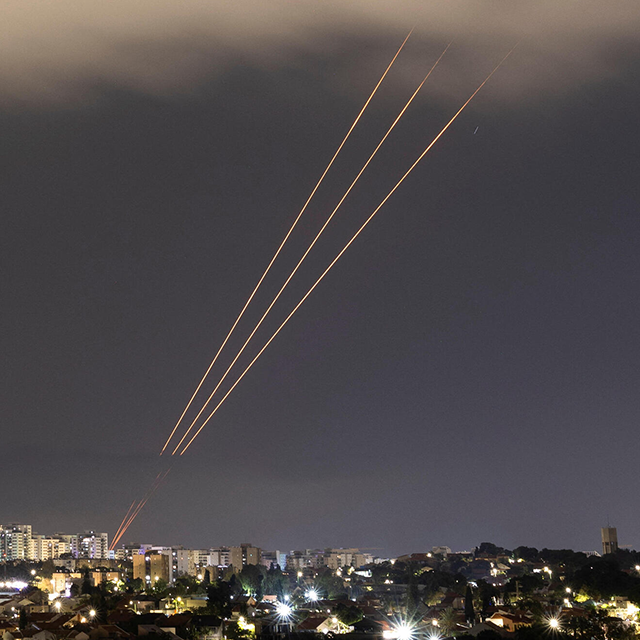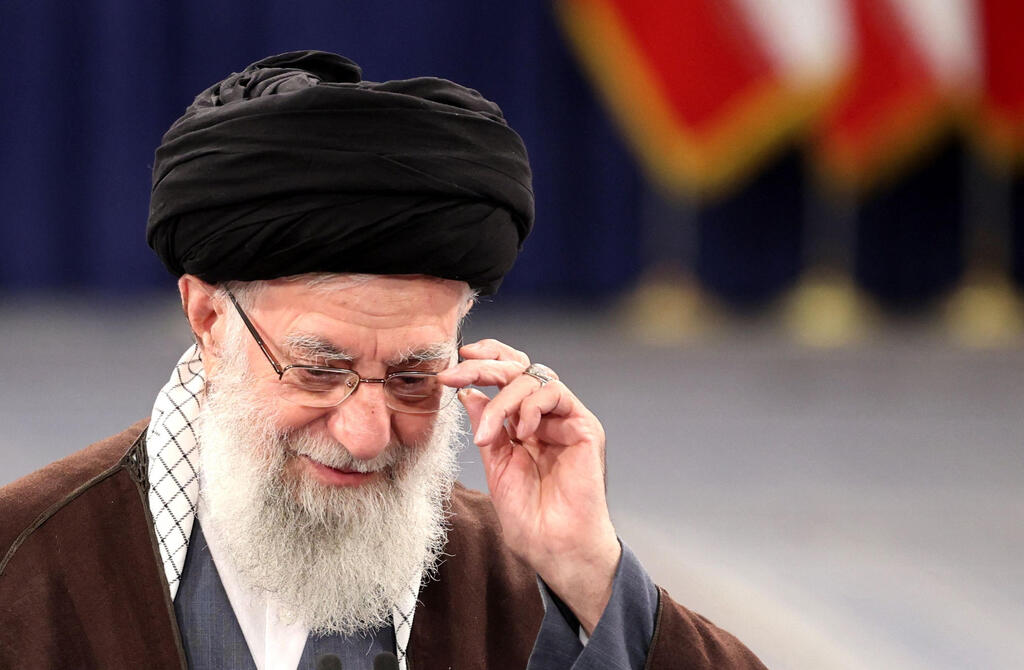The morning after the failed Iranian attack, Israel is examining how to respond. The public debate, like around any topic in this country, stirs up all the demons and emotions. As always, put two Israelis in one room, and you'll come out with three different opinions.
Israel is now fighting (within itself) on two fronts, influence and perception. The simpler front is the kinetic response front. Should we shoot or not? Bomb or not? And if so - where? When? How much? These are the relatively simple questions that circulate in the basic influence space of the Middle East power play.
If we respond, what would be the consequences? If we don't, how will it be perceived? How will Israel manage to create a significant impact on public opinion and thus strengthen deterrence? This question is simple because it does not include considerations of regional alliances, international relations, international communication and the United Nations Security Council. It's a game of influence at the most basic level. They shot at us, we shoot at them. They didn't hit, we will hit - and then (maybe) they will be deterred. Or not.
On the other hand, the more complex battle of influence and perception requires much more restraint, much more thought, and mainly - cool-headedness. Although the response might be delayed, the outcomes could be much more significant than those achievable by a mere gut reaction. The failed Iranian attack provided Israel with countless credit points:
A. Iran is the aggressor - the whole world is against it.
B. The world stopped (for a moment) focusing on Gaza. An opportunity for some diplomatic improvements.
C. The world understands what Israel has been claiming for years - Iran is a terror state. Everyone is talking about the failed Iranian missiles and drones, and about Israel's amazing air defense systems.
D. Key Western countries, led by the U.S., the real backbone of Israel - along with moderate countries in the Middle East - acted together to prevent an Iranian attack on Israel. This is unprecedented, and it's a crazy conscious achievement.
E. Israel is a technological superpower that regained its top spot in everything related to air defense overnight and dramatically improved its image in the field of precise intelligence. After October 7, this is a very important boost to morale.
F. Israel has an extraordinary opportunity to change the narrative and lead it, and to frame Iran very negatively. It depends on the influence capabilities of the Israeli system. Unfortunately, they are not great. We've seen it. But there is huge potential here to turn all the spotlights toward Tehran, the global capital of terror.
G. The whole world saw "Iran's might". A terror state that for years threatened Israel with North Korean-like military parades, failed against the attacked startup nation. Israel's defense systems schooled the Iranian aggressor, a terror state whose essence is fear and intimidation. From the moment it used its capabilities - they were exhausted. In the battle of perception - Israel is strong, Iran is weak. Iran is the aggressor, small Israel is successfully defending itself.
In the face of these achievements, if Israel attacks just for the sake of it, it may find itself losing the newfound international support it has garnered. I want to remind you of October 7: on that terrible day, it seemed as if the world was with us, understanding the disaster, standing by Israel's side. It took between 3 to 10 days for that to change. Public opinion flips quickly, especially after Israel goes on the offensive. Why? Just because.
Nothing compares to October 7, and therefore, in the Iranian case, Israeli aggression that increases global instability will not be well received. What today seems like an operational, security and diplomatic achievement for Israel can turn around within hours. And it will indeed turn around. The Russians will take care of it in the Security Council, and if oil prices rise (for example) - guess who will be blamed.
The internal struggle is not easy, but there is one clear conclusion: Israel must not react as Iran did. Israel must not fight Iran on the same battlefield. In the missile arena, Iran took a strong hit. There is no need to prove, again, how much less good it is than Israel. The whole world is talking about Israeli might and the regional alliance against Iran. And the Iranian nuclear plan, which is exactly what Israel needs and wants. Not another unwinnable front.
 Attila SomfalviPhoto: Gil Yochanan
Attila SomfalviPhoto: Gil YochananOvert, unsophisticated aggression lacking any security achievements and significance won't benefit Israel. Clandestine Mossad-style actions - like bombing Iranian targets without leaving a trace, will definitely enhance the halo around Israel, and allow world powers to continue supporting it.
The battle of perception is no less important than the number of bombs to be mounted on the jets that will bomb Iran. Around the decision-making table, the test of perception must be a central consideration at the top of the leaders' minds. Just bombing Iran no longer makes an impression over time, and certainly does not contribute to building Israel's strength in the region and the world.
- Attila Somfalvi is a strategic, media and political consultant and a former senior political analyst at Ynet.





